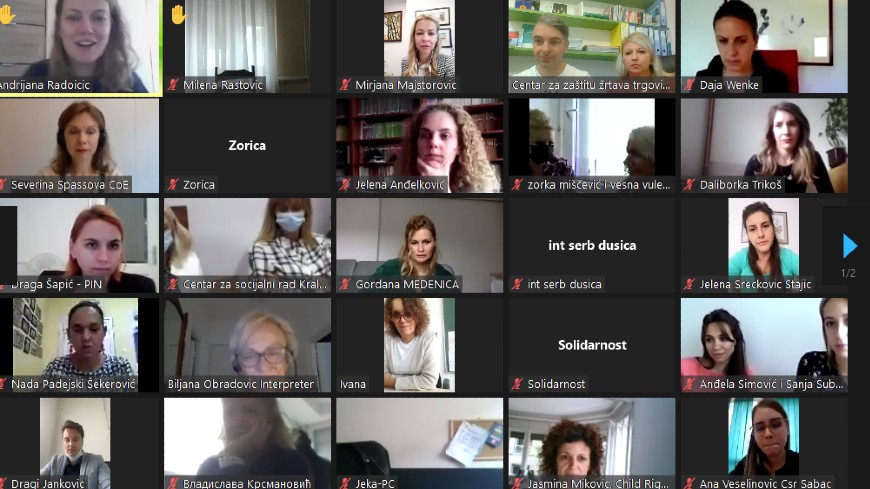Child-sensitive communication and evidence-based protocols in interviewing child victims of trafficking should be applied by any person or institution in contact with children. These tools respect the best interests of the child, help avoid secondary traumatisation during the administrative and judicial proceedings and support the child’s recovery and rehabilitation.
Good communication as a safeguard for the child victims of trafficking is the basic principle enshrined in the new practise-oriented guidance document “Hearing child victims of exploitation and trafficking and children at risk: guidance for child-sensitive communication and interviewing to obtain accurate and reliable statements from children”, developed within the joint European Union and Council of Europe action “Preventing and combating trafficking in human beings in Serbia”.
Round table on available tools and good practices in child-sensitive communication in Serbia took place online on 20 September 2021 and gathered more than 50 participants from social care centres and foster homes, as well as practitioners from civil society organisations. The event was organised in co-operation with the Centre for Human Trafficking Victims’ Protection and the Serbian Social Care Chamber.
Daja Wenke, co-author of the guidance document, pointed out that research findings affirm: “Children are generally able to remember events and to make reliable and accurate statements from a young age and when the child is traumatised. Yet, children require support to do this, which is why child-friendly environment, trained professionals and usage of evidence-based interviewing protocols are necessary”.
Representatives of the Centre for Human Trafficking Victims’ Protection presented cases when evidence-based interviewing tools (such as forensic interview) are used in formal interviews with children who are involved in administrative or judicial proceedings as victims or witnesses. The Centre stressed that these evidence-based tools can be used beyond the forensic context and by all service providers communicating with children. Moreover, the participants discussed concrete examples of interviews with traumatised children and common mistakes in applying evidence-based interviewing tools.
The participants acknowledged the guidance document and the round table as very useful and helping them learn and address challenges in real life situations and when assessing cases involving children.
The action „Preventing and combating trafficking in human beings in Serbia“ is part of the joint European Union/Council of Europe programme “Horizontal Facility for the Western Balkans and Turkey 2019-2022”.
Hearing child victims of exploitation and trafficking and children at risk: guidance for child-sensitive communication and interviewing to obtain accurate and reliable statements from children


